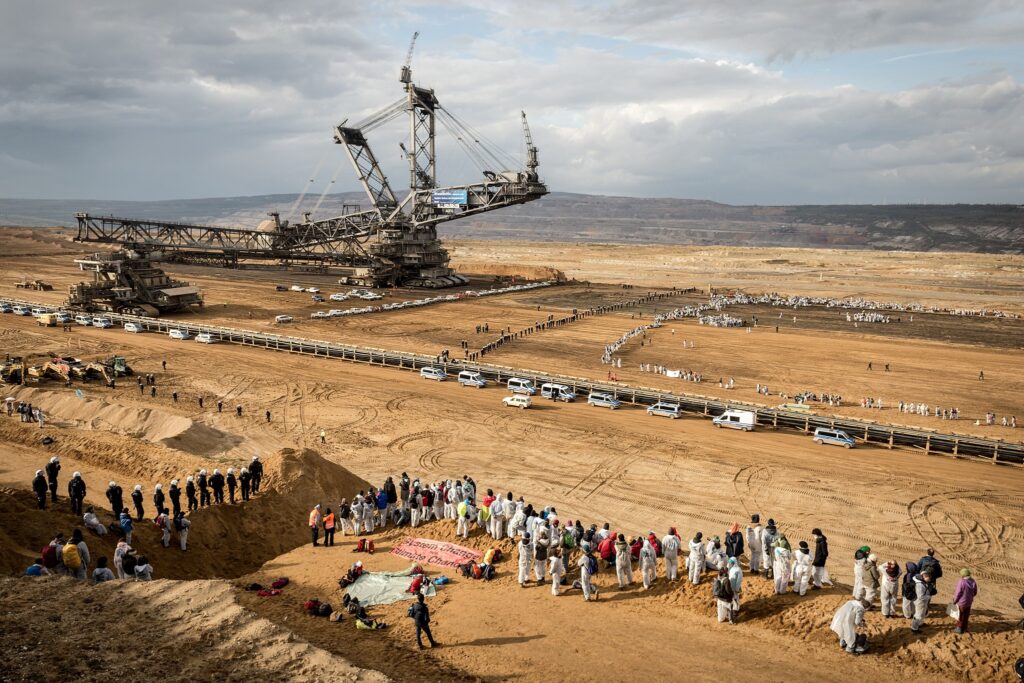Last year Nikolas Mattheis argued on this blog that climate school strikes are acts of civil disobedience (rather than truancy), that pupils are entitled to this form of protest and that they should not be punished. I agree. Acts of civil disobedience by Fridays for Future, Extinction Rebellion, Ende Gelände and similar movements cause substantial public dispute. However, a more radical and troubling question emerge from recent writings in political philosophy: Given the great injustice involved in climate change, are uncivil acts of resistance morally justified? In the following I will argue that most of them are not.
John Rawls and Jürgen Habermas seminally claimed that a conscientious breach of law must be public, non-violent and perpetrators must accept legal punishment. Yet, Candice Delmas and Simon Caney argue that uncivil resistance to injustice falling short of these three conditions can be morally permissible, too. While Rawls and others assumes a nearly just state when defending civil disobedience, Delmas and Caney highlight that grave injustices are inflicted upon people in global and national contexts. If necessary for the protection of people’s fundamental interests, covert, evasive, sometimes even violent action may be warranted. Possible activities include publication of classified information, stealing medicine, hiding illegal immigrants, armed defence against racist assaults and rioting.

Blockage of a lignite open pit near Bonn, Germany (photo by Christian Bock, https://www.flickr.com/photos/133937251@N05/26439720559/, license: CC BY-NC-SA 2.0)
But what does this mean for climate activism? Climate change is an outrageous injustice: It deprives many people of the ability to exercise core human rights. The lion’s share is caused by middle- and upper-class people but disproportionally affects the poor and disadvantaged. This is known at least since the 1990s but the response of decision-makers and citizens often consists of a mix of denial, delay and demagogy.
Apart from climate policy obstruction from notorious autocrats and pseudo-autocrats, 90 companies alone are responsible for 57% of the CO2 increase in the atmosphere since the industrial revolution. In 2015, they caused 70% of all man-made greenhouse gas emissions. Moreover, these companies often cooperated with regimes responsible for torture and murder (ExxonMobil being accused of direct involvement), disregarded basic environmental protection norms and contributed to the climate change disinformation and intimidation campaign.
The misconduct is blatant, the consequences for present and future human and non-human beings are severe. Peaceful demonstrations do not seem to move climate unfriendly governments and companies. Thus, has the time come to uncivilly attack the most frivolous of them, say by acts of sabotage as depicted in “Woman at War” or coercively invading parliaments? I do not think so.
Resistance here is a means to protect people’s rights from climate change. Radically reducing greenhouse gas emissions over the next decades is a prerequisite for that. This in turn requires political majorities pro reduction. Climate activism aims at raising awareness for the need to decarbonize and at halting or slowing climate-damaging actions. It is not about protecting people from imminent threats. And emissions from the fossil fuels industry will not go down due to sabotage but due to regulation and divestment. True, limited violence may sometimes increase the communicative quality of an act by drawing greater attention to the activists’ cause. But I contend that, in the current societal situation with violence-prone right-wing populism and extremism on the rise, this will not strengthen support for emissions reductions. Rather, actions beyond public, non-violent blockades, guerrilla street art/theatre etc. will make it easier for opponents to stigmatize, redline and criminalize climate activists. It will most likely alienate many potential and actual supporters. Such activities will not contribute to advancing people’s rights, neither in the short nor in the long run. (Though I am less sure whether cyber-attacks will have similar detrimental effects if targeting e.g. agents of the disinformation campaign.)
In a nutshell, then, my argument is that most covert, violent actions are detrimental to the goal of decarbonization and should therefore not be pursued. The conclusion calls for careful considerations of likely consequences of activism in the short and long run, taking into account entitlements of all people affected including activists. Regarding the latter, legal punishment can be severe, resulting in long-standing debt and imprisonment. But what is the responsibility of people teaching climate justice in this repsect? Should we ignore the topic of resistance, warn of the dangers or let the students’ figure it out themselves? I believe that this issue adds to the difficulties of teaching climate ethics thoughtfully outlined by Megan Blomfield. The only answer I can offer now is that students, teachers, activists and citizens in general need to carefully deliberate about the grey area between necessary resistance to greenhouse gas intensive projects/structures/laws and reckless activism.